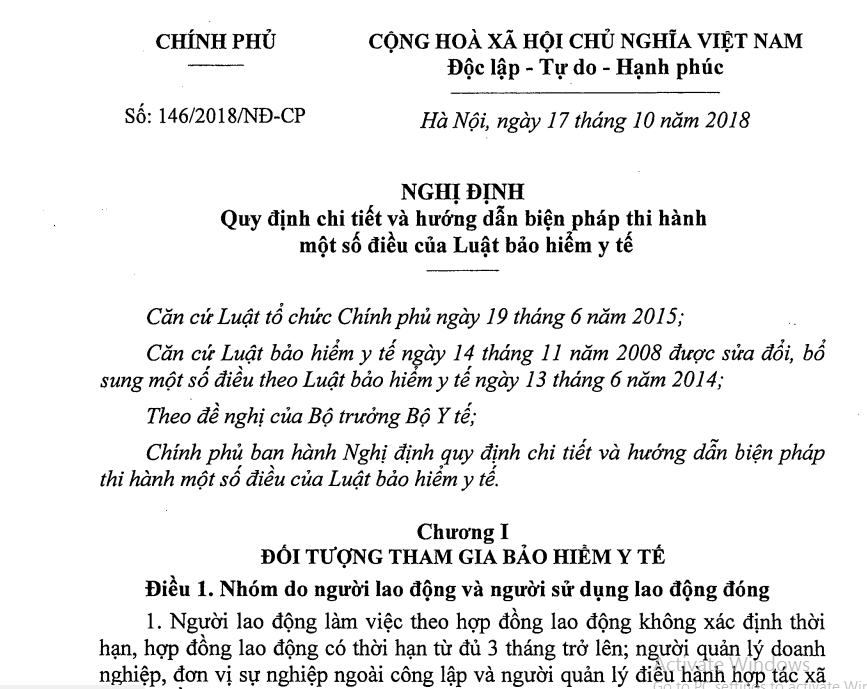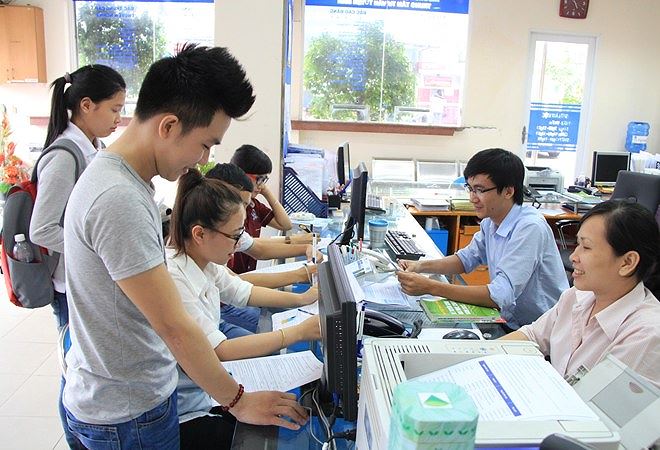Resolution 28-NQ/TW of the Central Executive Committee on reforming social insurance policies was just signed by General Secretary Nguyen Phu Trong on May 23, 2018 with several notable contents as follows:
Addition of 04 Mandatory Social Insurance Participants:
Expanding 04 categories of mandatory social insurance (SI) participants includes:
- Household business owners;- Business managers without salary;- Managers and operators of cooperatives without salary;- Workers engaged in flexible policies.
Reducing the Number of Contribution Years to Receive Pension by Half
Resolution 28-NQ/TW clearly states that conditions for pension eligibility will be modified, specifically reducing the minimum number of social insurance years from 20 years to 15 years, aiming towards just 10 years with suitable calculation for workers, facilitating older workers with fewer social insurance years to access and enjoy social insurance benefits.
Designing Short-term SI Packages for Workers
Specifically, designing short-term SI packages for the following 02 categories:
- Short-term SI package for voluntary SI participants, helping them flexible participation and benefits.- Short-term SI package for workers in the informal sector:
Informal sector workers usually have unstable, precarious jobs, low income, and sometimes long working hours. This group often does not sign labor contracts and has limited access to social insurance. Therefore, designing a short-term social insurance package with appropriate contributions, benefits, and transaction methods for this demographic aims to accelerate the increase in social insurance participants in the informal sector.
Employees Allowed to Retire 5 Years Earlier than the Prescribed Age
From 2021, adjusting the retirement age according to the objective of increasing the general retirement age, gradually bridging the gender gap in retirement age regulations. For specific occupations, employees have the right to retire earlier or later than the prescribed retirement age by up to 5 years.
Amendment of Contribution Levels, SI Contribution Basis
Changing regulations on the basis of social insurance contributions for enterprises to at least about 70% of the total salary and other incomes of salary nature of workers to address the issue of avoiding contributions, insufficient contributions, affecting the balance of the Social Insurance Fund and workers' rights.
Research into adjusting the contribution rate to the Social Insurance Fund towards balancing the benefits between employers and employees with the goal of expanding social insurance coverage.
Independent Pension Payments from Wages
Adjusting pensions relatively independent in relation to the wages of working individuals. Implementing social pension benefits adjustments based on the fiscal balance capability of the state budget; basic pensions shall primarily be adjusted based on the increase of the consumer price index, the capability of the Social Insurance Fund, and the state budget; appropriately adjusting for those with low pensions and who retired before 1995 to narrow the pension gap among different retirement periods.

Investing in Government Bonds through the SI Fund
Enhancing the evaluation and financial forecasting, and investment efficiency of social insurance funds; diversifying the portfolio and structure of the Social Insurance Fund investment under principles of safety, sustainability, and efficiency; prioritizing government bond investments, especially long-term government bonds; gradually expanding to high return potential areas, step-by-step and with a roadmap for investing part of the idle funds of the Fund via entrusted investment domestically and internationally ensuring safety and sustainability.
Amendment of Pension Calculation Method
Amending the pension calculation method towards reducing the accumulation rate, ensuring long-term balance of the pension fund, and aligning with international practices. Implementing a plan to extend the actual social insurance participation period, protecting pensioners' rights according to contribution-benefit principles, fairness, and appropriate sharing.
Reducing the Situation of One-time SI Benefit
Setting appropriate regulations to reduce the situation of one-time social insurance benefit by increasing the benefits if preserving the participation period to receive a pension, reducing benefits if taking the one-time social insurance benefit.
Amending regulations to encourage workers to participate in social insurance for a longer period, gradually increasing the average retirement age, increasing the pension reduction rate for workers who wish to retire early.
Simplifying the SI Contribution Procedures
Promoting administrative reform, applying information technology, simplifying processes and procedures for registering, contributing, and enjoying social insurance, improving the quality of providing social insurance services towards being friendly, public, and transparent, facilitating citizens and enterprises.
 Article table of contents
Article table of contents
.jpg)




.Medium.png)
.Medium.png)
.Medium.png)
.Medium.png)
